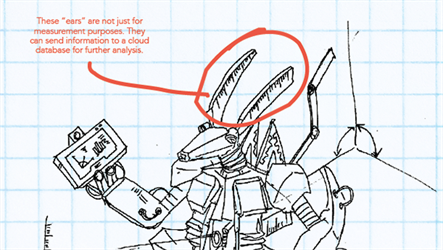Finding The Innovator In You

In recent years, there has been an emergence of a fascinating trend known as the “maker movement” in Singapore. Often tech-driven, makers belong to a new class of expert amateurs who develop interesting projects and solutions that would normally have come from the R&D labs of big companies or the universities. These innovators, who tinker and experiment using open-source and rapid prototyping approaches, are blurring the traditional disciplinary lines of learning, and creating opportunities for creative, new scientific and technological expressions.
And more often than not, such innovation comes out of unlikely places. In traditional hang-outs for artists and designer types, such as Waterloo Centre and Bras Basah Complex, we are beginning to observe a rise in do-it-yourself innovations.
For example, Leon Lim, 36, who runs a T-shirt transfer printing business at Sunshine Plaza, has been developing an automatic process for making printed circuit boards (PCBs). Being an avid tinkerer, he observed that he could design the circuits using design software like Photoshop Illustrator and transfer the pattern onto a copper board using the same heat transfer process for T-shirt printing. After experimenting with a range of household chemicals, such as vinegar, salt and disinfectants, he discovered that he could use some of them to produce high-quality PCBs, which he then used to customise his own office automation solutions – saving himself a lot of money.
Over at Bras Basah Complex, another maker is developing a Web-enabled “smart” desktop aquaponics system. Even without formal qualifications in plant biology or agrotechnology, Nelson Quek, 40, has been experimenting and developing novel solutions to help plants grow without natural sunlight. He spends much of his time reading scientific journals and patents, and putting his hypotheses into practice. Nelson, who did not complete his secondary school education, also taught himself computer-aided drafting, rapid prototyping techniques involving 3-D printing, electronics and Arduino microcontrollers (programmable circuit boards).
It is common for makers like Leon and Nelson to display a high level of autodidactism and spend much time “learning by doing”. They turn to YouTube videos or special interests forum groups as their main sources of information. More importantly, they keep trying, learn from their failures and move on.
Singapore may have a small population but we do have many expert amateurs in our midst. We certainly do not have a shortage of talent. Makers are not simply enigmatic eclecticists but rather, anyone who is willing to dedicate a significant portion of their time to learn and apply practical, actionable steps to build something to solve a problem. And most of the time, a maker is simply the person you see in the mirror every day. I am sure we can find many makers within the Public Service.
After observing and promoting this nascent movement for the past three years at the Science Centre Singapore, I decided to put my money where my mouth is. I took the plunge into entrepreneurship and set up my own creative consultancy company after serving 15 years in the Public Service. I organise maker events and gatherings both locally as well as regionally as a way to bring makers together to connect and support each other in their creative practice.
Recently, my company formed a consortium with five other companies to successfully bid to operate an early-stage prototyping facility for start-up entrepreneurs at the National Design Centre, in response to a public call by SPRING Singapore and the DesignSingapore Council. The facility provides a physical space, tools and equipment to support makers like Leon and Nelson in bringing their projects to fruition. Additionally, it also serves as a nexus for the gathering of inventive minds where they can learn, share and collaborate to think up the next big thing. I believe that the maker movement in Singapore will be a way to tap and grow our own capability and talent, doing something that we love and are passionate about. I have taken a step ahead and I hope there will be others to join me in this journey too.
William Hooi was a design & technology educator and the founder of Singapore Makers (sgmakers. com). He is now a director of OneMaker Group, which runs the prototyping lab at the National Design Centre.
- POSTED ON
Jan 8, 2015
-
Deep Dive
Seeing Risk Differently








